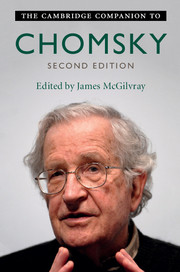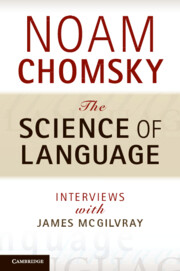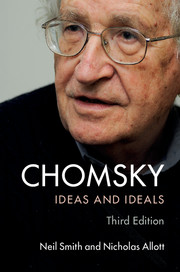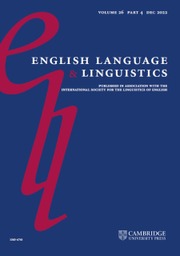The Cambridge Companion to Chomsky
This completely new edition of The Cambridge Companion to Chomsky surveys Chomsky's contributions to the science of language, to socioeconomic-political analysis and criticism, and to the study of the human mind. The first section focuses on the aims of Chomsky's recent 'biological-minimalist' turn in the science of language, and shows how Chomsky's view of the nature of language and its introduction to the human species has recently developed. The second section focuses on Chomsky's view of the mind and its parts - and how to study them. Finally, the third section examines some of Chomsky's many contributions to socio-political history and critique. This new edition examines Chomsky's views on a wide range of issues, from his views of the lexicon, language's evolution, and the study of mind to the status of capitalism and the Palestine-Israel conflict. It will be essential reading for anyone with an interest in Chomsky's ideas.
- Provides new perspectives on Chomsky's contribution to the study of mind, language, and politics
- Asks what the sciences of the mind can accomplish, and how
- Includes entirely new chapters commissioned for this new edition
Reviews & endorsements
'… [this] latest edition of The Cambridge Companion to Chomsky should appeal to a wide and diverse readership and is an invaluable resource in studying Chomsky’s ideas.' Fiona Roxburgh, Modern Language Review
Product details
May 2017Hardback
9781107165892
330 pages
235 × 158 × 20 mm
0.7kg
7 b/w illus.
Available
Table of Contents
- Introduction
- Part I. The Science of Language: Recent Change and Progress:
- 1. The locality of transformational movement: progress and prospects Howard Lasnik
- 2. Is the faculty of language a 'perfect solution' to the interface systems Samuel Epstein, Hisatsugu Kitahara and Daniel Seely
- 3. On merge Norbert Hornstein
- 4. A feeling for the phenotype Robert C. Berwick
- 5. The generative word Hagit Borer
- 6. Third factors in language design: some suggestions from quantum field theory Massimo Piattelli-Palmarini and Giuseppe Vitiello
- Part II. The Human Mind and its Study:
- 7. The influence of Chomsky on the neuroscience of language David Poeppel
- 8. Cognitive science: what should it be? James McGilvray
- 9. Semantic internalism Paul M. Pietroski
- 10. Faculties and modules: Chomsky on cognitive architecture John Collins
- 11. Chomsky and moral philosophy John Mikhail
- Part III. Chomsky on Politics and Economics:
- 12. Critique and hope: the moral basis of Chomsky's political economy Charles Derber
- 13. The propoganda model and manufacturing consent: US public compliance and resistance Anthony R. DiMaggio
- 14. Chomsky listens: Latin America and the ethics of solidarity Greg Grandin
- 15. Noam Chomsky and the question of Palestine/Israel: bearing witness Irene Gendzier.






